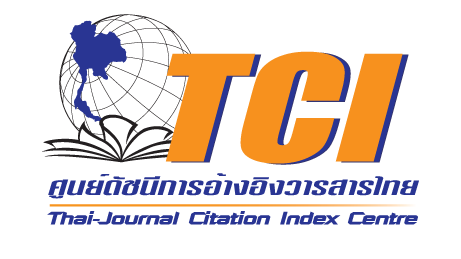Mental Toughness in Elite Thai Female Sepak Takraw Players
Keywords:
Mental Toughness, Thai female Sepak takraw playerAbstract
This qualitative research has been aimed at studying the meaning, the component factors and the guidelines to develop the mental toughness of Thai female elite Sepak Trakraw players. This research data collection employed semi-structural interviews and observational methods. Seventeen experienced Thai Sepak takraw, a game similar to volleyball with control of foot instead of hands and arms, players (age 17-26 years) were subjects of the study. Data was analyzed by the Constant Comparison method. The data was qualitatively verified for trustworthiness by member checks and peer debriefing.
The analysis indicated that mental toughness is an ability to self-control and creates advantage in competition, the ability to be patient when faced with obstacles, and also commitment and focus, both in training and in competition. The 6 components of mental toughness include 1) patience 2) ability to confront an obstacle 3) self-confidence 4) commitment and concentration 5) ability to control negative energy, and 6) ability to create positive energy. The six factors of mental toughness include 1) an athlete’s personality 2) family support 3) teammate and coach 4) variety of training program 5) model and 6) personal experience. The guidelines to develop mental toughness during training and competition are different. During training, athletes should train as close to the real situation as possible and practice with positive energy, have specific goals for practice, and practice psychological skill techniques in order to be mentally tough. During competition they should compete with positive energy, receive encouragement by the coach and work as part of the team, these are the main factors affecting athletes’ mental toughness. Finally, the problems and obstacles to developing mental toughness include physical and mental unreadiness, the communication between coach and players, verbal comments from significant others, and suspicions of teammates. According to this study, mental toughness is important to success in sport, which is derived from a combination of an athlete’s personality and environment.
(J. Sports Sci. Technol 2011; 11 (2): 274–287)
Keywords : Mental Toughness, Thai female Sepak takraw player






